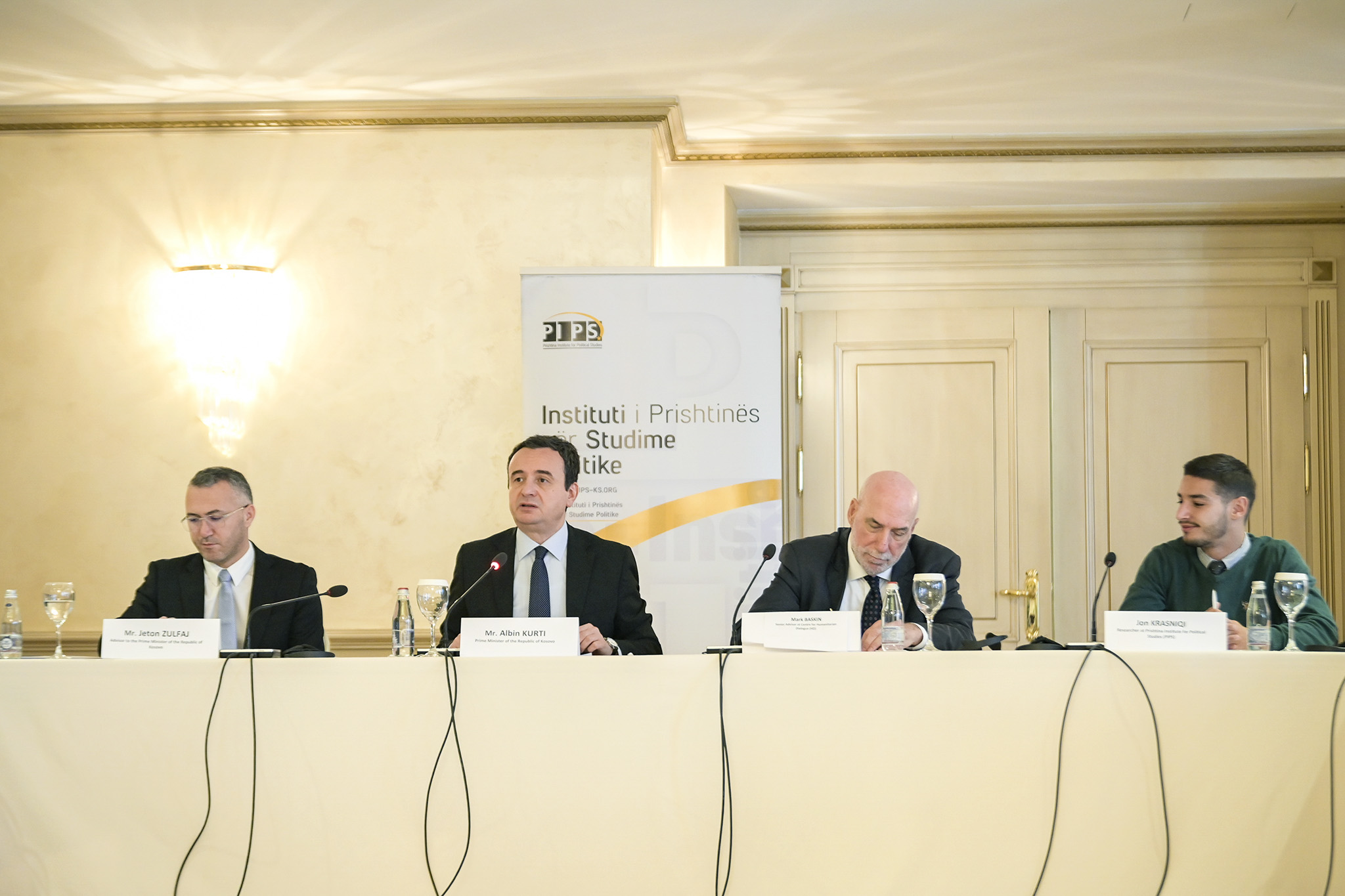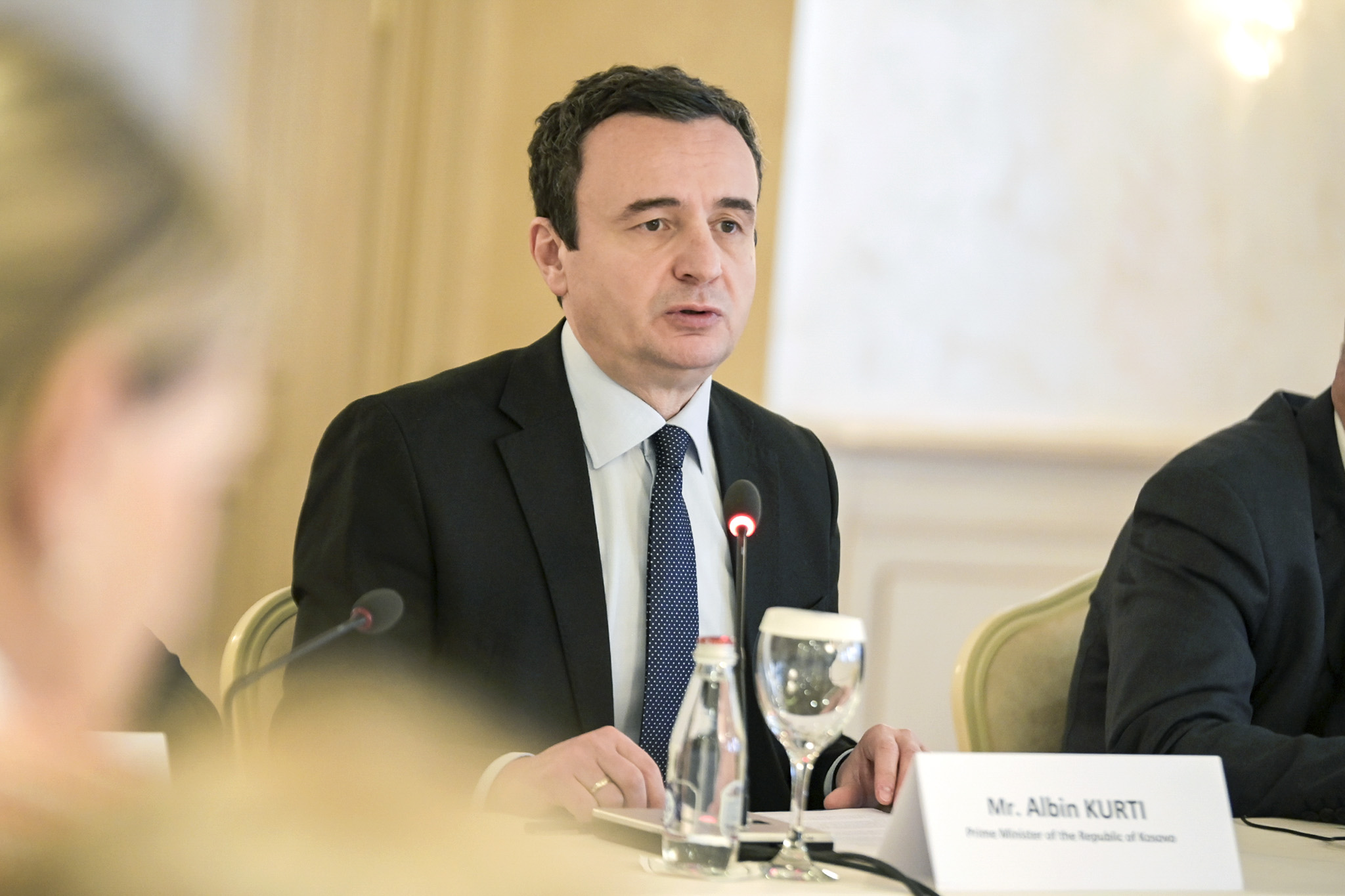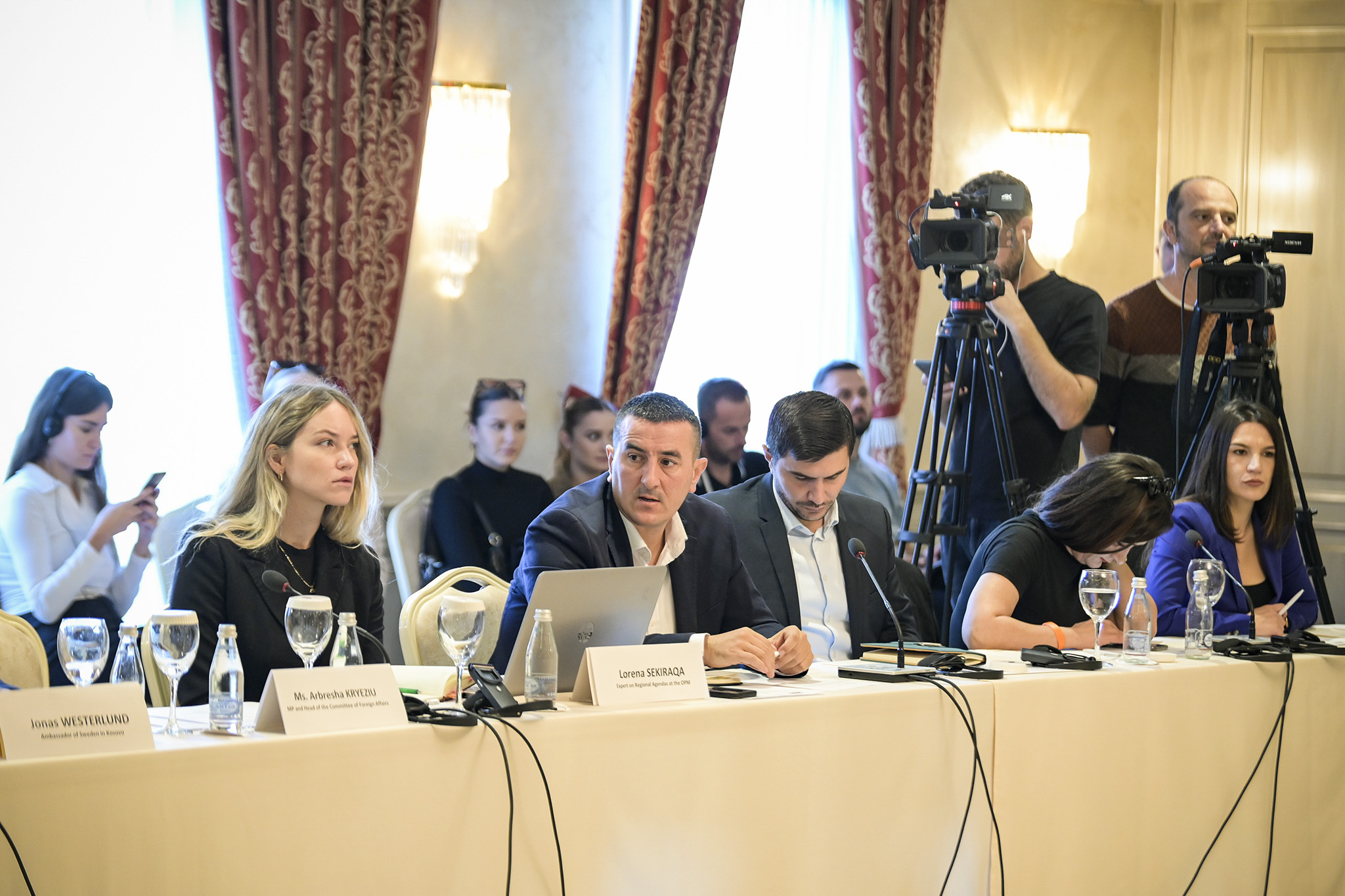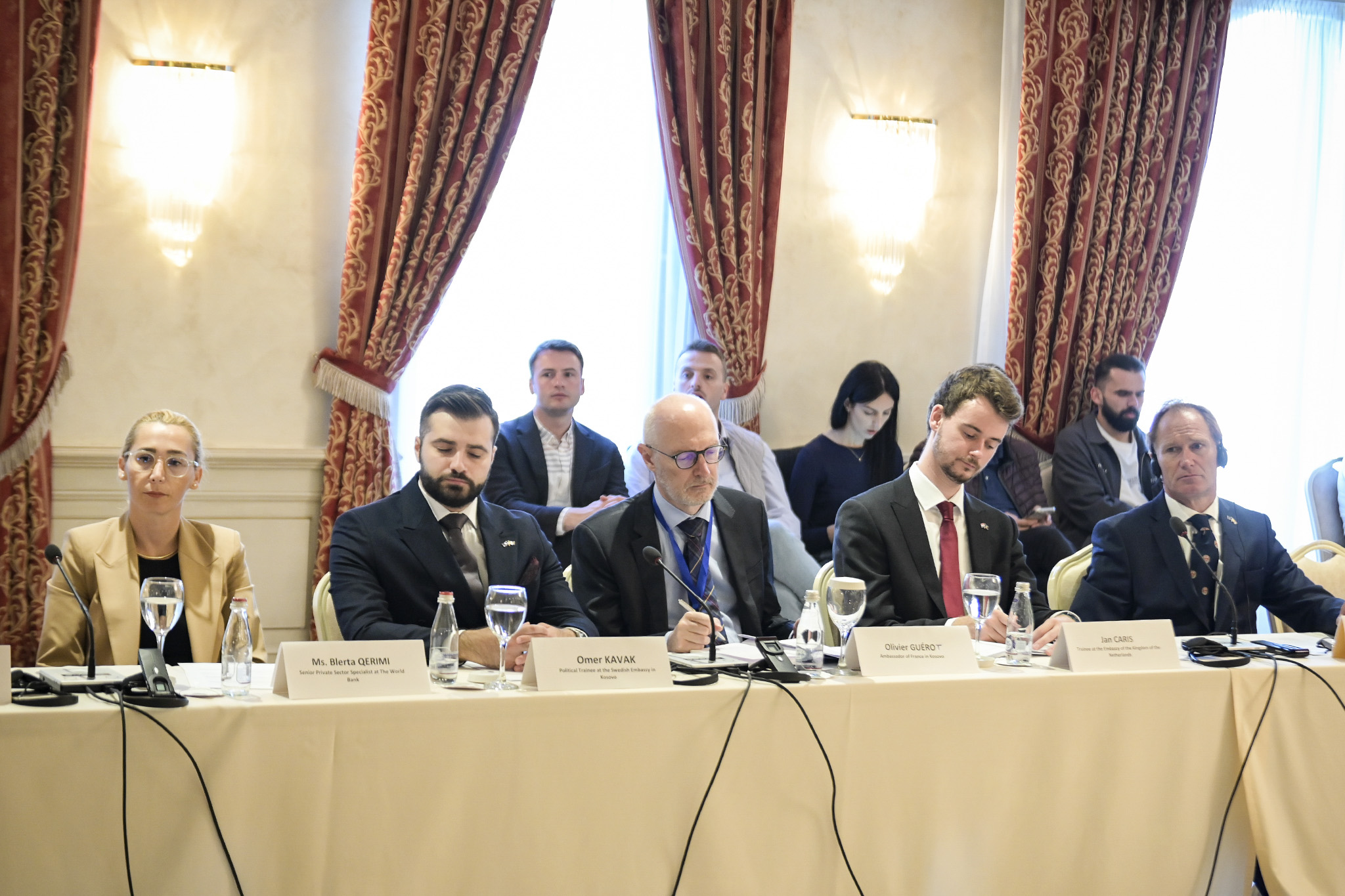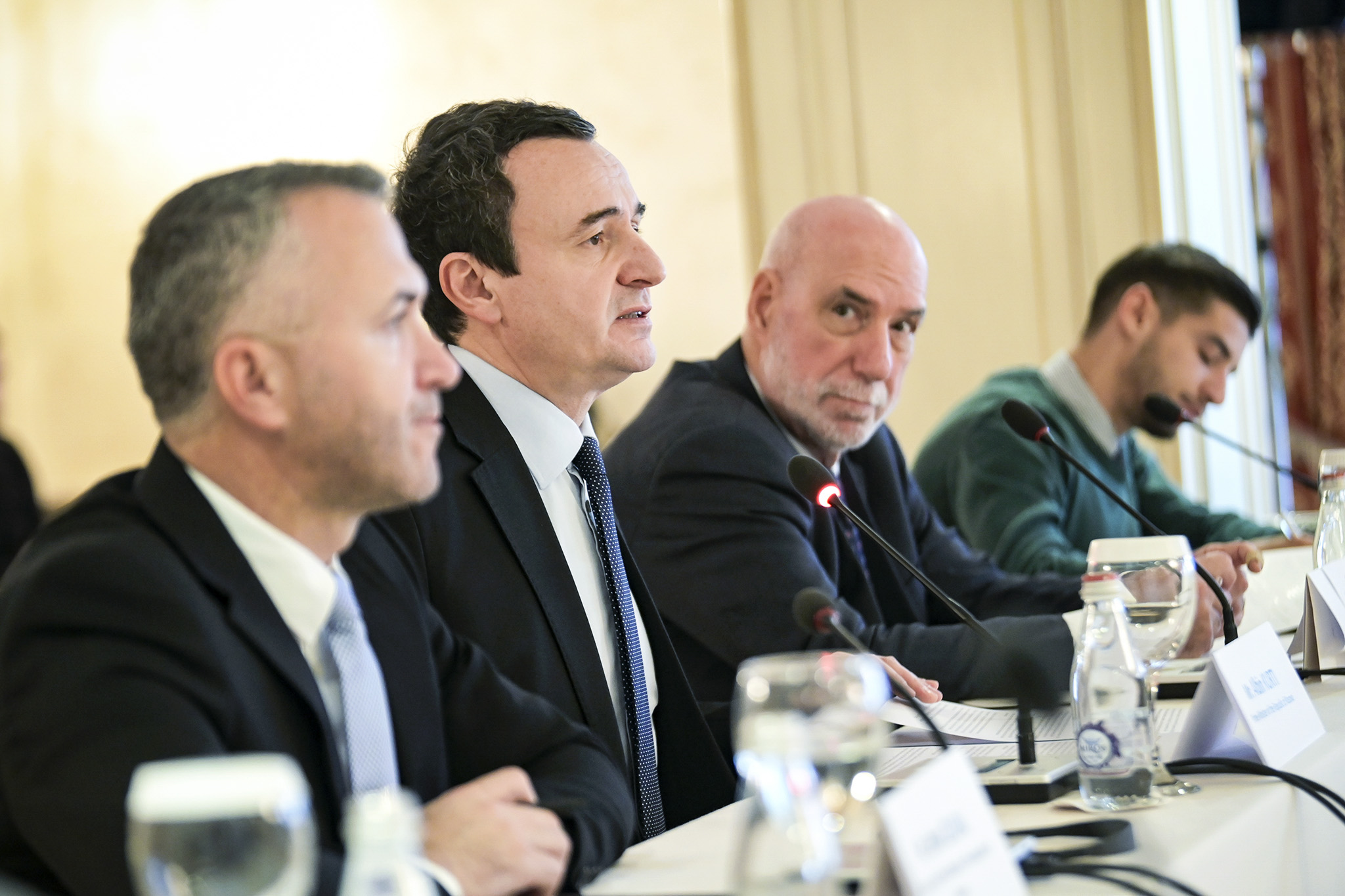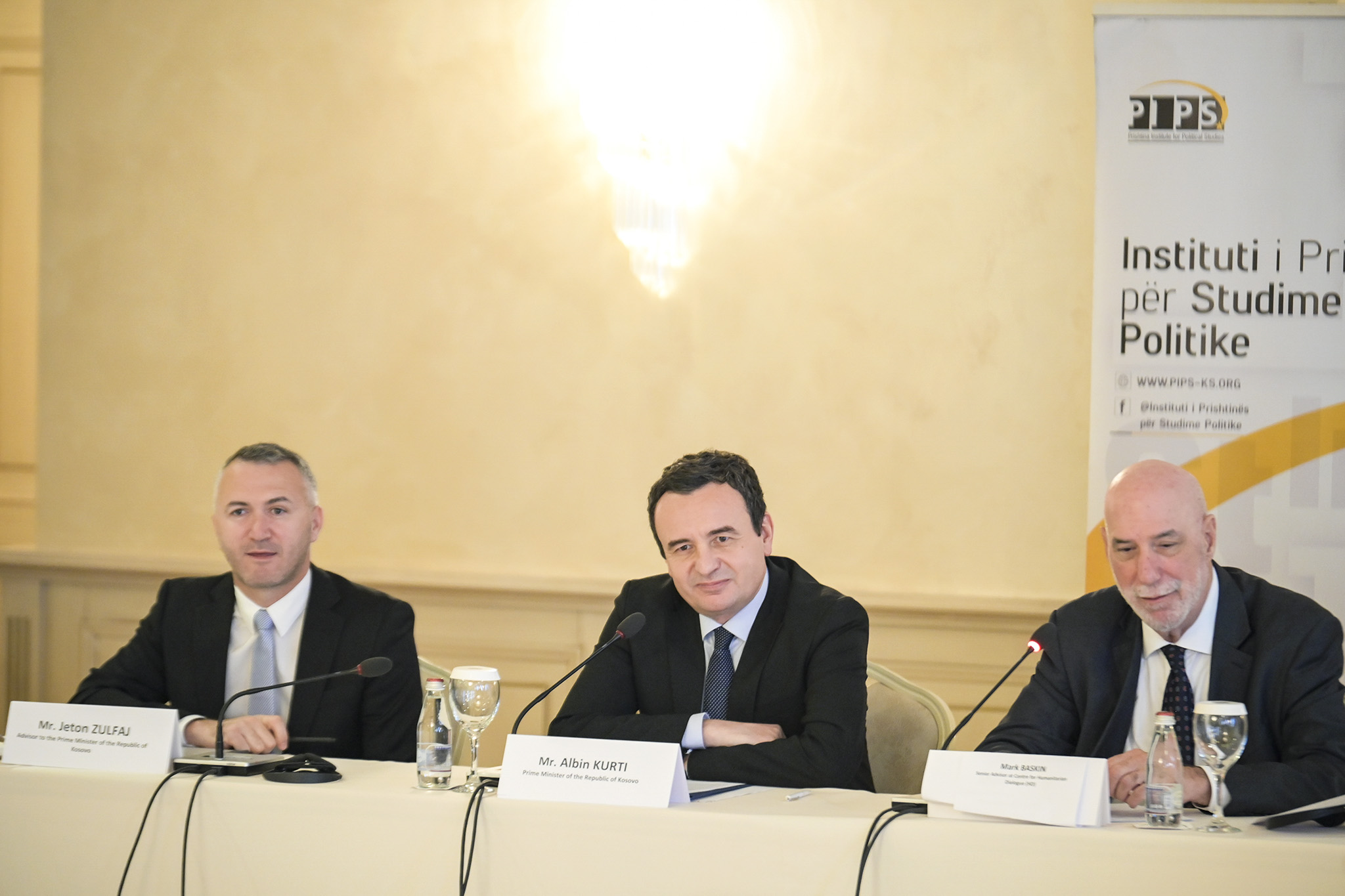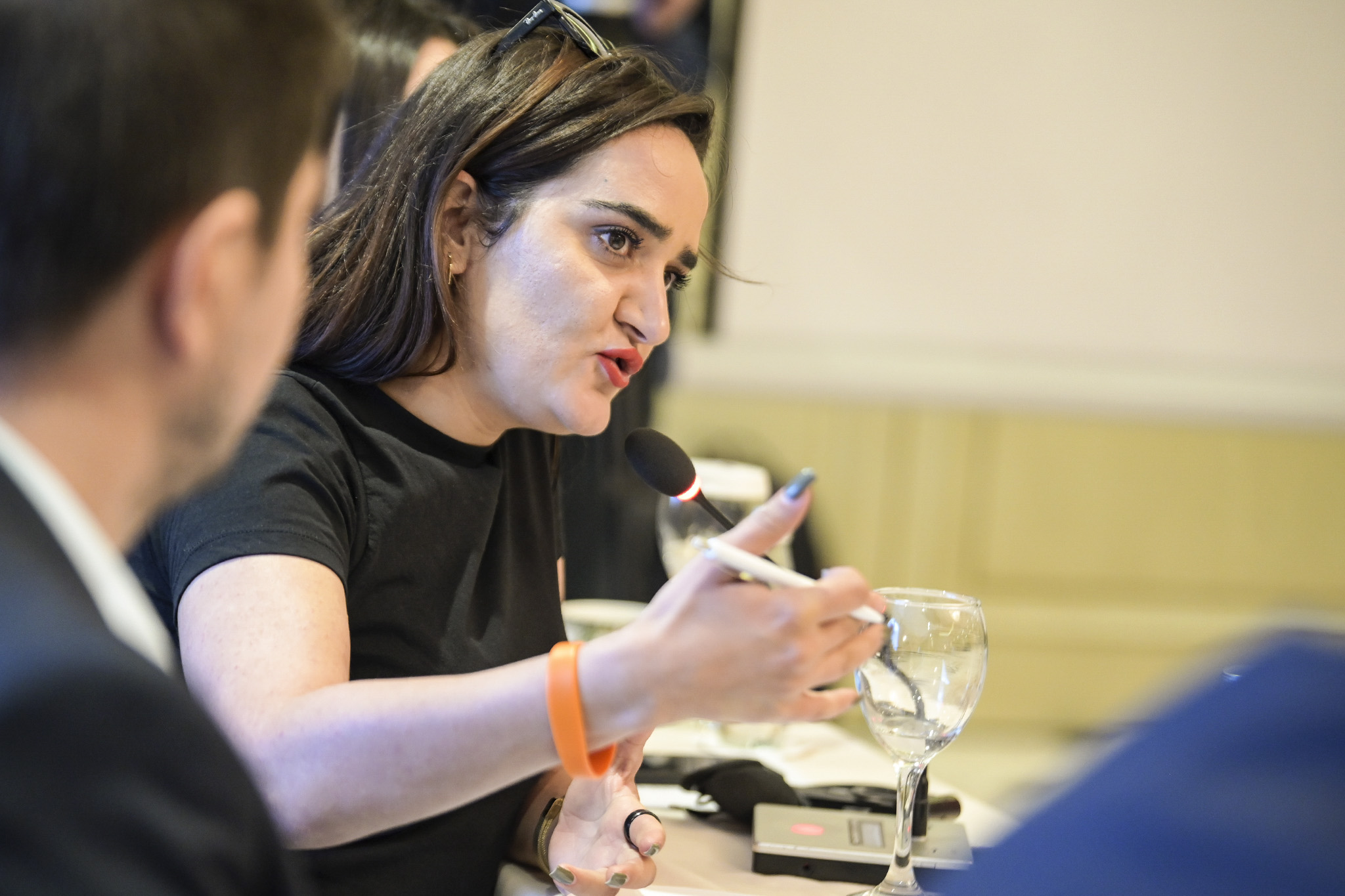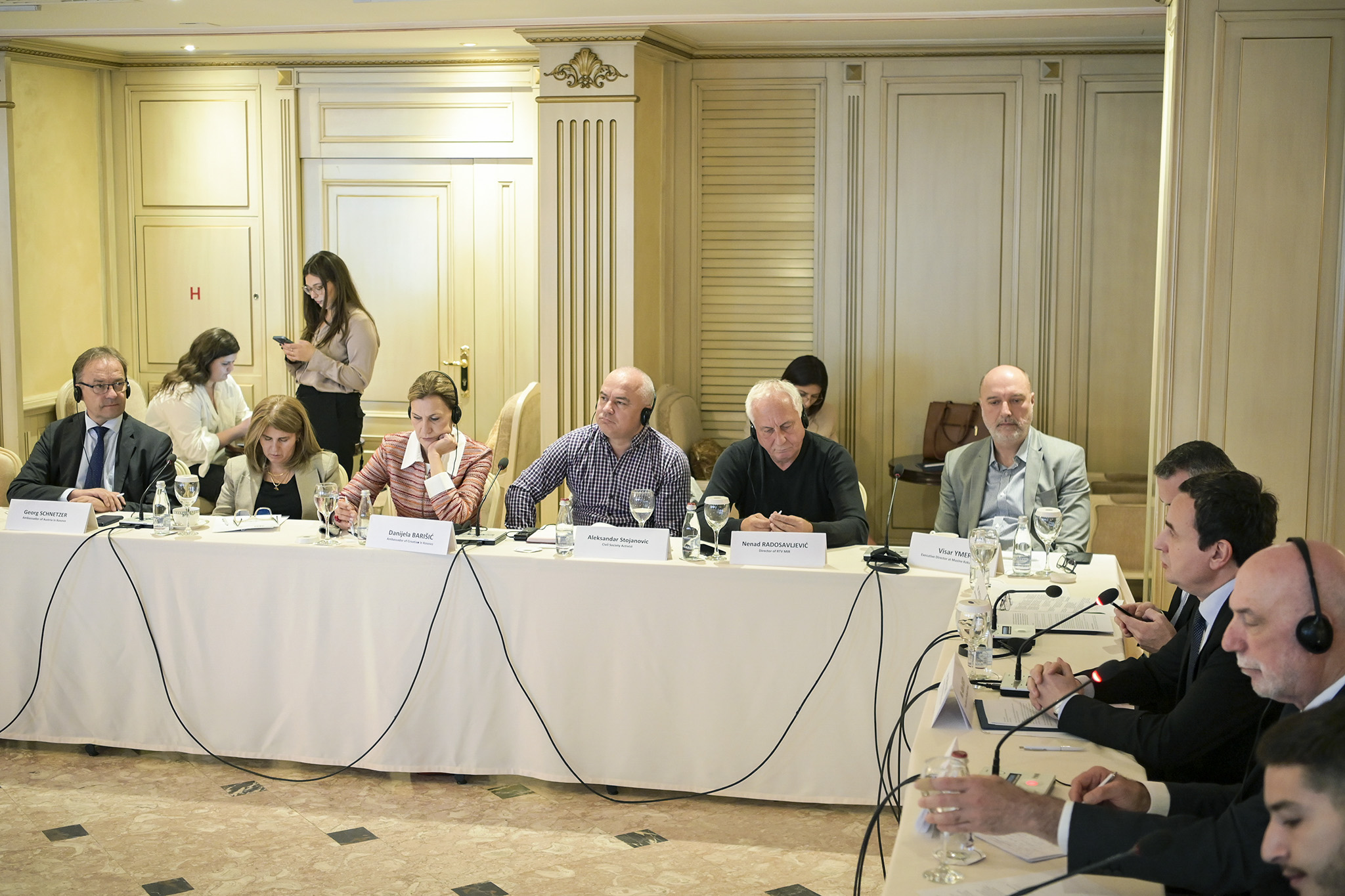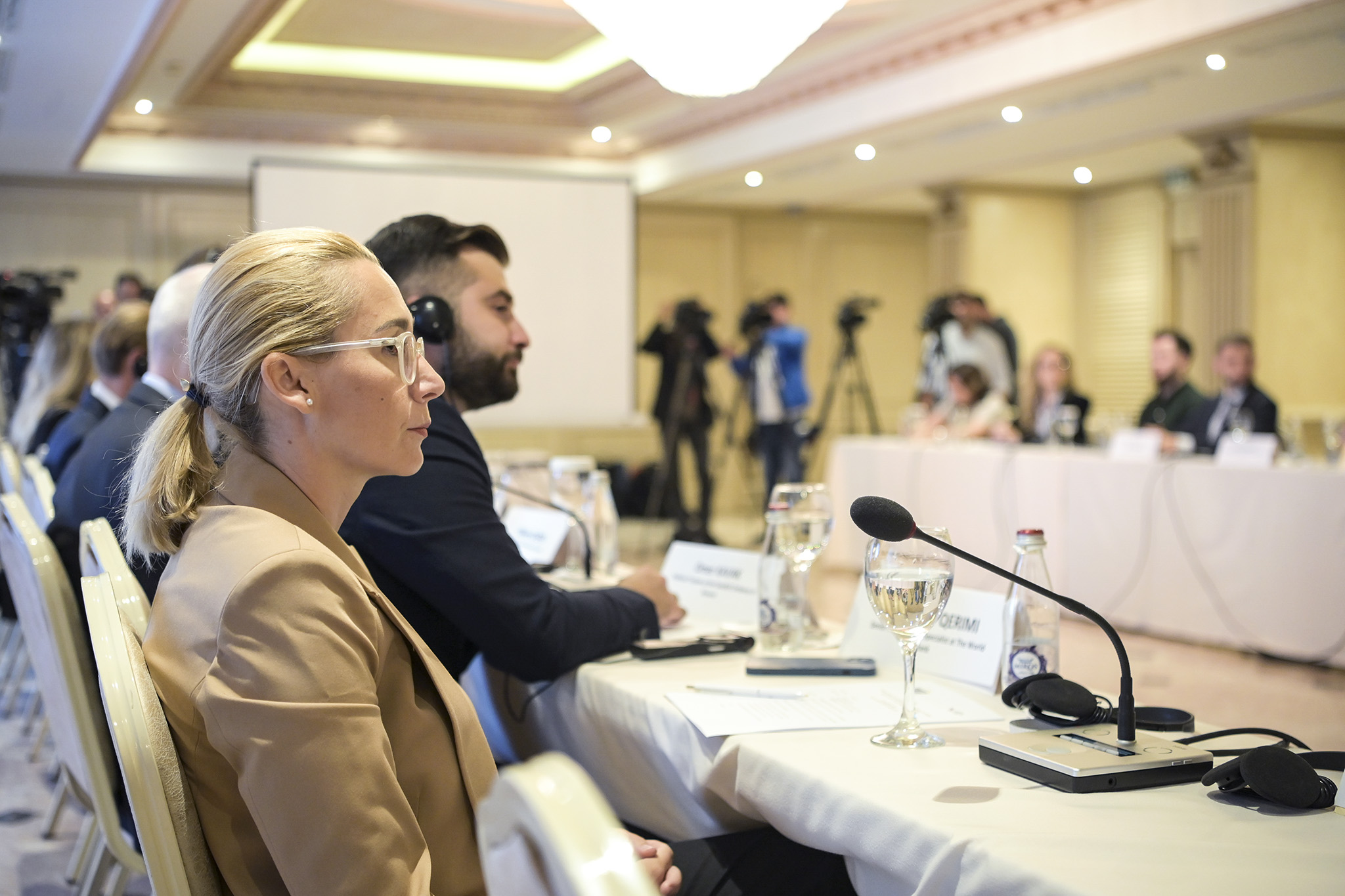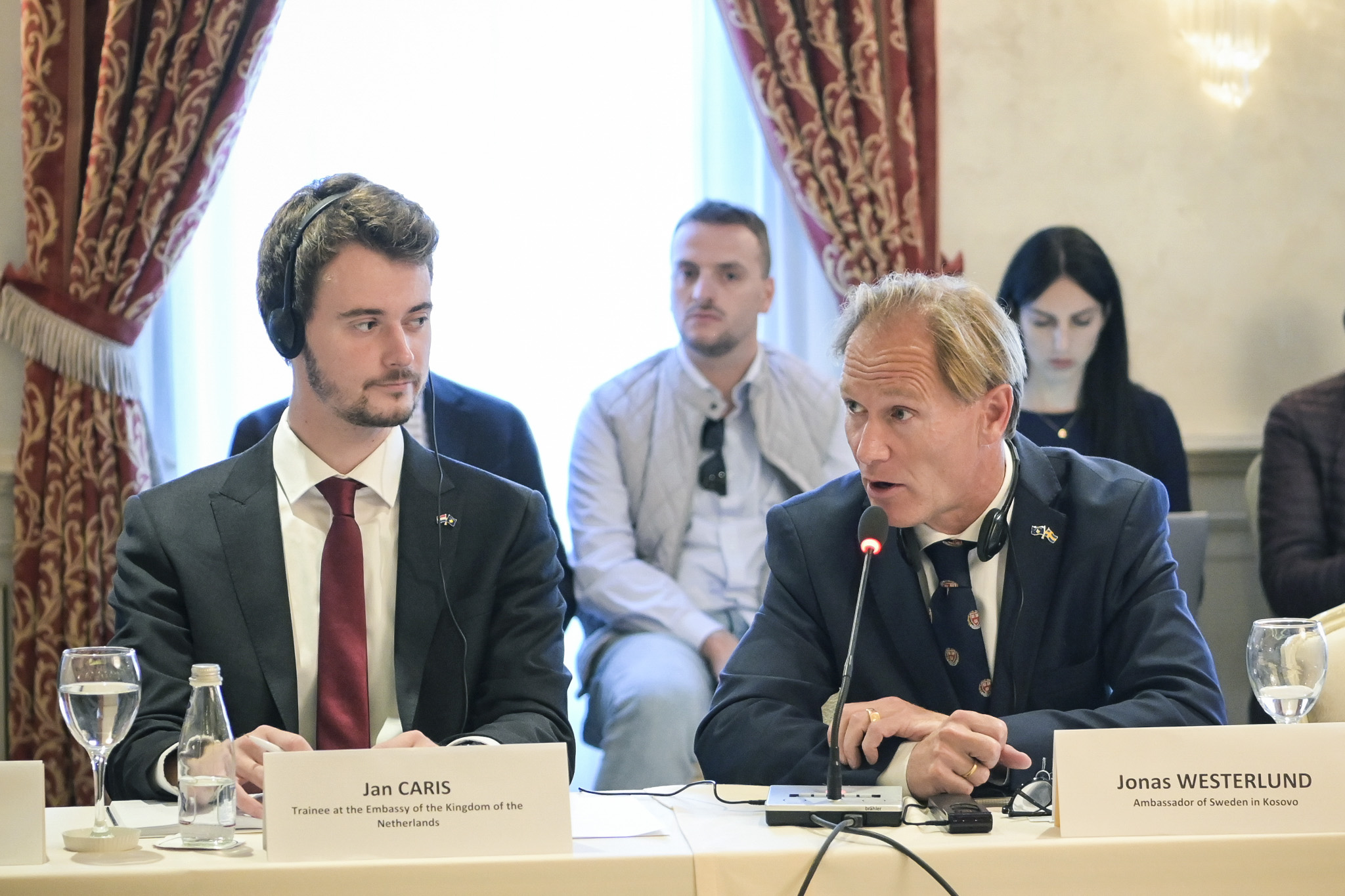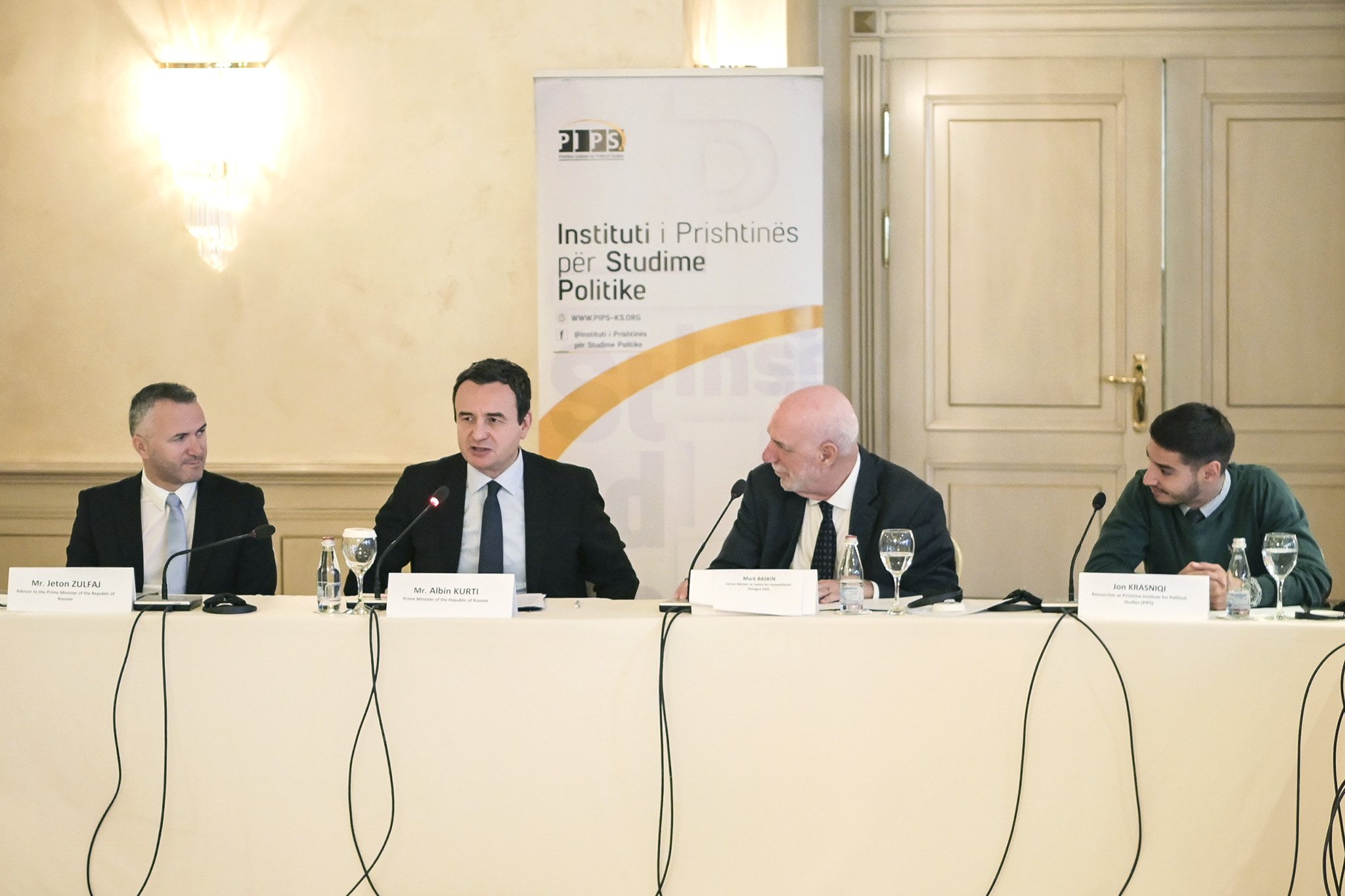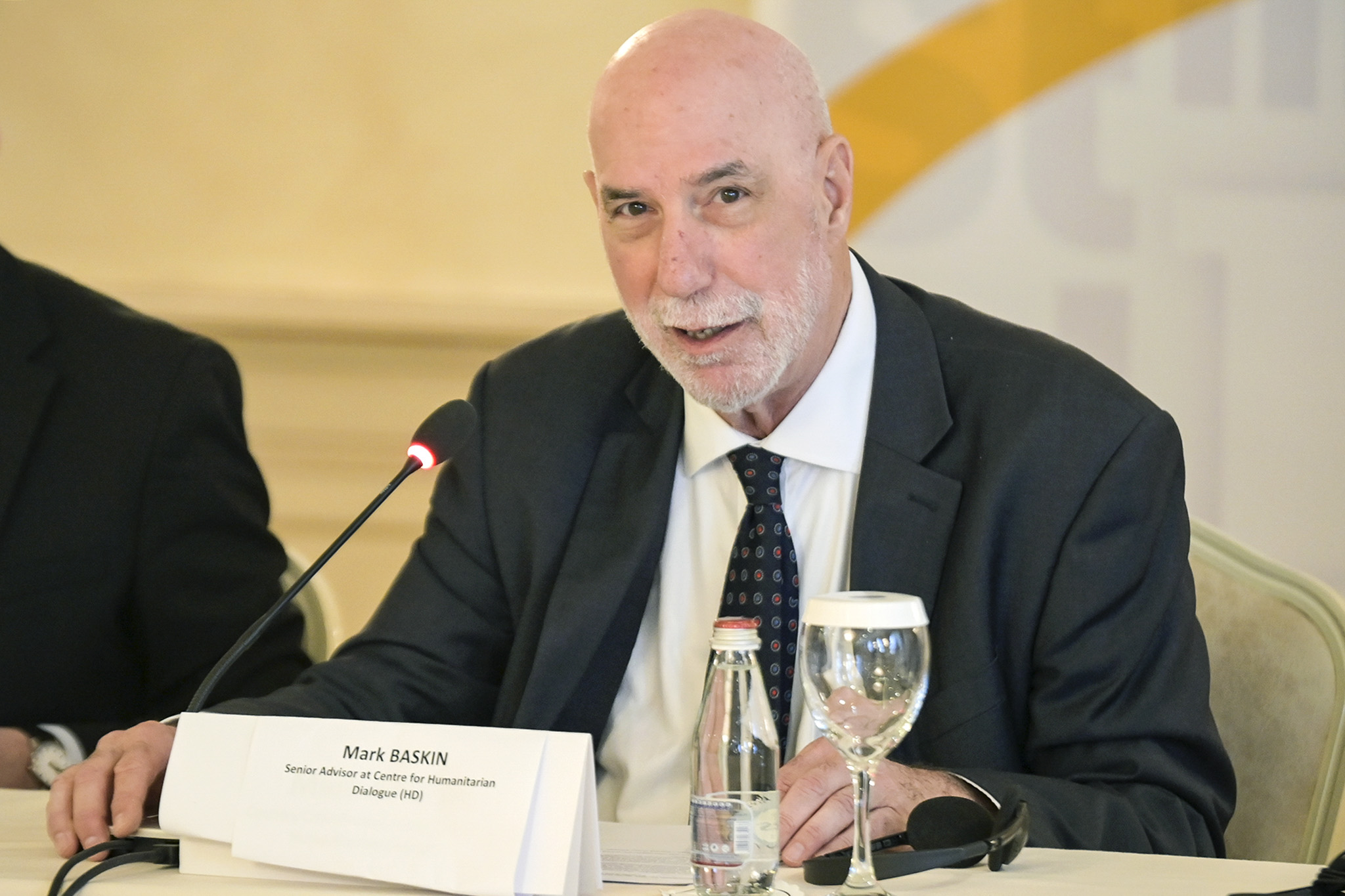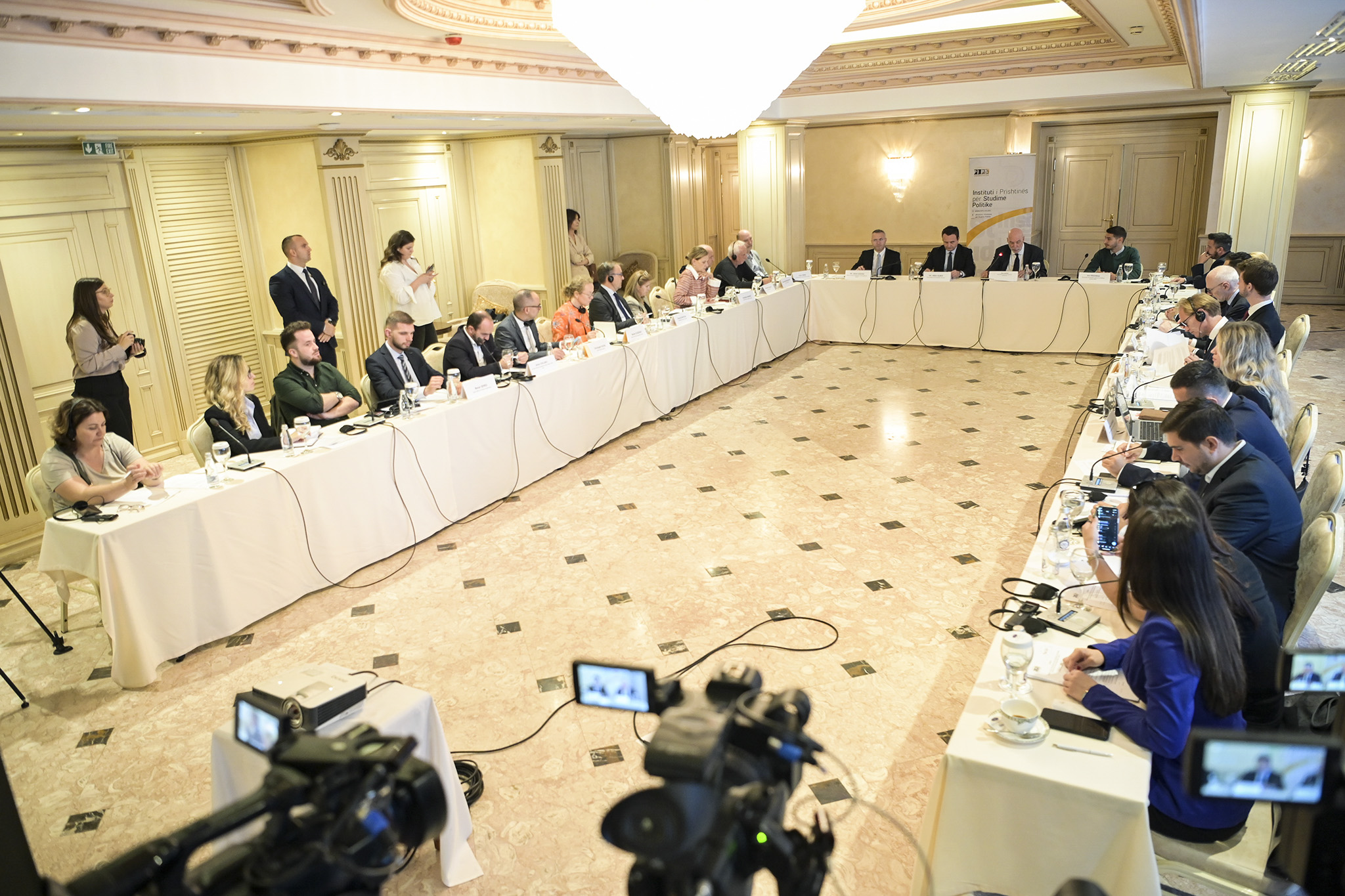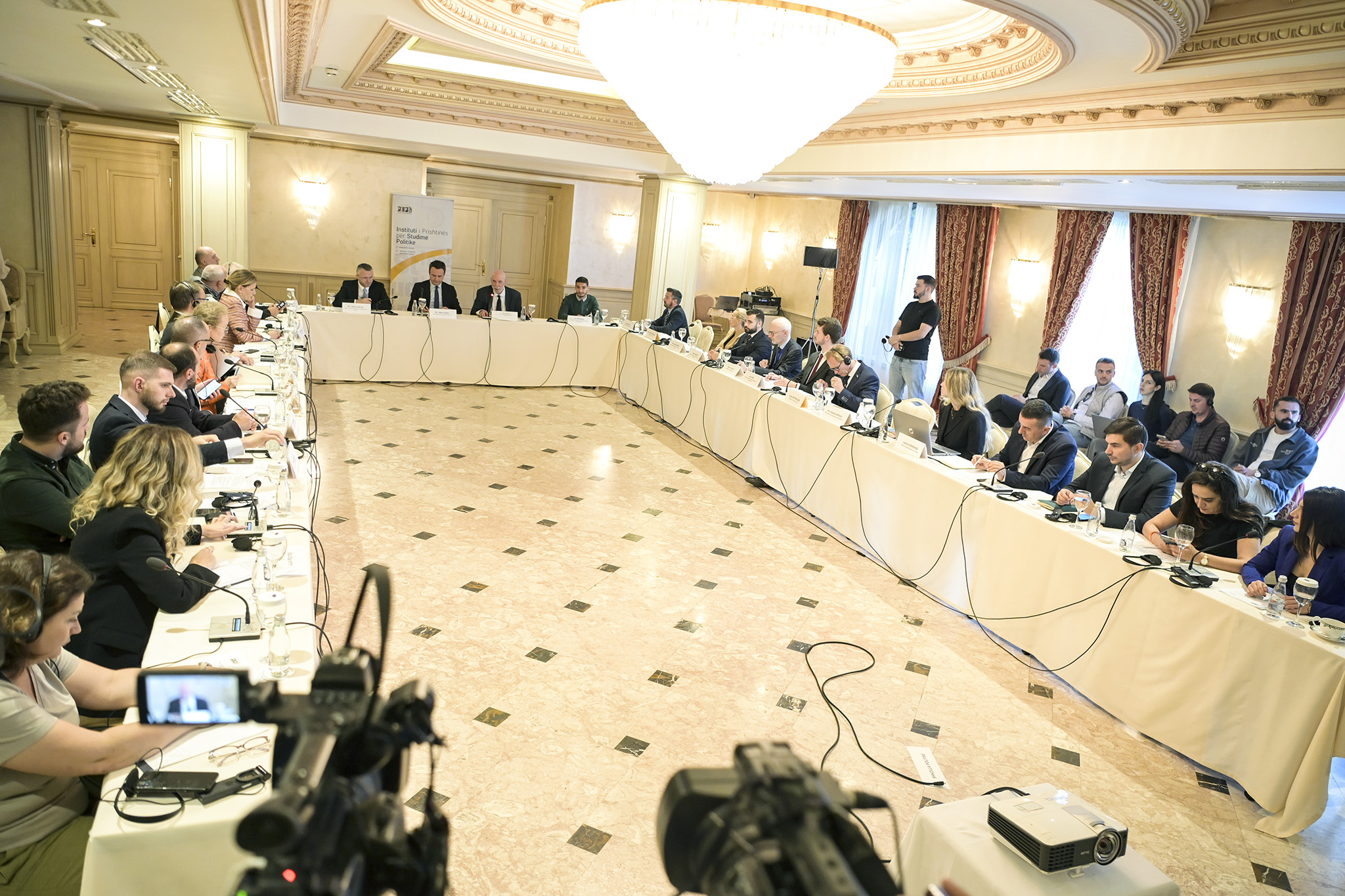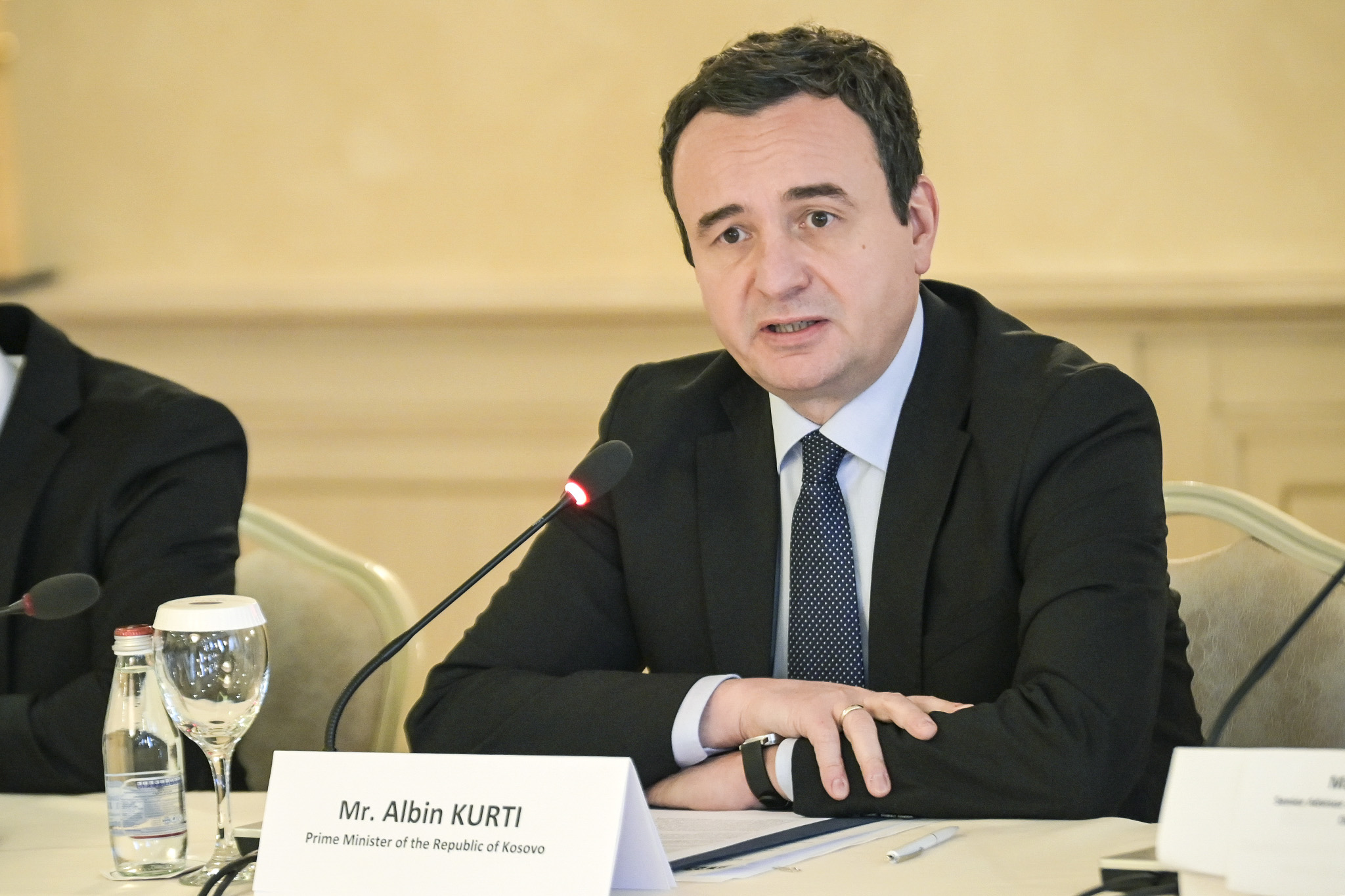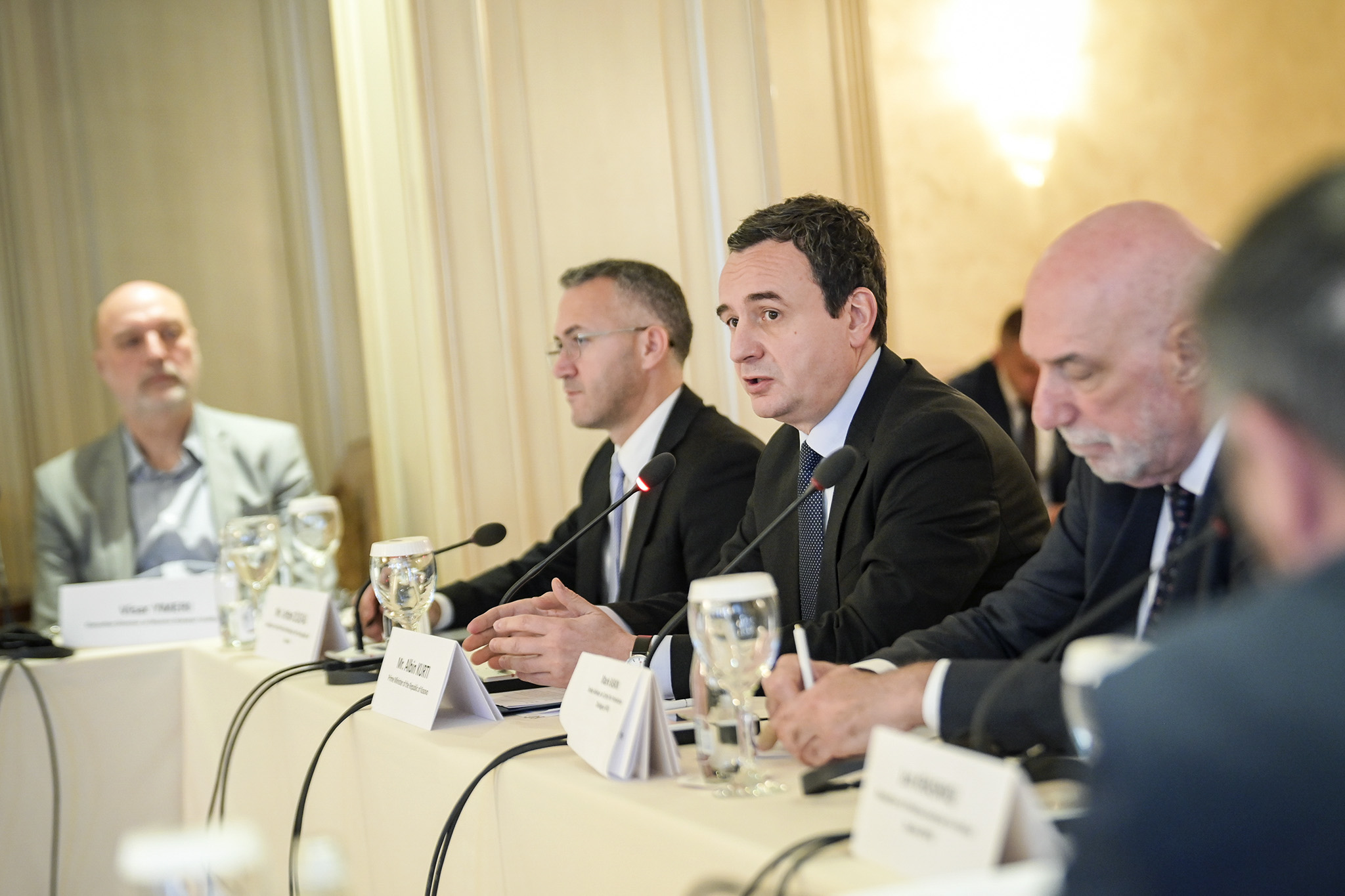Prishtina, 3 October, 2023
The Prime Minister of the Republic of Kosovo, Albin Kurti, today participated in the discussion table “Berlin Process: Achievements so far, expectations from the next summit and possible benefits from the Joint Initiative of the Regional Market” organized by the Pristina Institute for Political Studies (PIPS), in collaboration with HD – Center for Humanitarian Dialogue.
Two weeks before the Summit of the Berlin Process in Tirana, Prime Minister Kurti emphasized the importance of this meeting to discuss what the government is doing to implement the commitments made, but also to provide transparency to the citizens.
The signing of three mobility agreements last year in Berlin, according to the prime minister, marks a big step forward for the region, while he said that the Berlin Process should help our democratic consolidation and economic development, as our engagement in the region and in the world reflects our work at home.
“We have shown that what the Republic of Kosovo brings to the Berlin Process is a determined commitment to freedom and democracy, good governance and the rule of law”, he emphasized, mentioning the fact that Kosovo is the first country to ratify all three agreements signed in Berlin, within this process.
In his introductory speech, the Prime Minister also underlined the fact that Kosovo is ranked first in the Western Balkans for improving the rule of law by the World Justice Project; the improvement of political rights and civil liberties by Freedom House; improving the fight against corruption by Transparency International; press freedom from Reporters Without Borders’ World Press Freedom Index; liberal and electoral democracy from V-Dem Institute’s Varieties of Democracy index; for the collection of tax revenues from the IMF; as well as for the largest fiscal package to help citizens face the food and energy crisis and fight inflation, from the World Bank.
Regarding the current situation in the country, Prime Minister Kurti said that it is important that after the terrorist attack of Serbia against Kosovo, we should not behave as if nothing had happened. There must be consequences for Serbia’s behavior and all perpetrators must be held accountable for their involvement in inspiring, preparing and participating in the September 24 terrorist attack.
“While I am sitting at the dialogue table in Brussels and at the Berlin Process Summit to make an agreement for the future, as we saw a week ago, Serbia was working on military plans to annex our territory,” the prime minister declared, adding that this proves that Serbia is not interested in regional cooperation for EU membership, but rather in alternative geopolitical orientations that enable it to maintain its hegemonic ambitions towards the surrounding states.
In anticipation of the Tirana Summit, the Prime Minister concluded his speech by emphasizing the need for common values and goals, the full implementation of the agreements we signed last year, on November 3 in the Berlin Process, and a new commitment that moves even further barriers between the six states of the Western Balkans.
Prime Minister Kurti’s complete speech
Dear Ambassadors,
Representatives from the Parliament and Government,
Dear participants,
Thank you to the Prishtina Institute for Political Studies and the Center for Humanitarian Dialogue for bringing us together.
Two weeks before the Berlin Process Summit in Tirana, we are meeting to discuss the progress we have made since last year, when we signed three agreements, respectively on “Freedom of Movement with Identity Cards in the Western Balkans”, “Recognition of Higher Education Qualifications” and “Recognition of Professional Qualifications for Doctor of Medicine, Doctor of Dental Medicine, and Architects” – collectively known as the mobility agreements.
This is a real process where political and human capital, but also funds, have been invested throughout the years to bring the Western Balkans Six closer to one another, and to the European Union.
So, it is important that we meet from time to time to discuss what the Government is doing to implement the commitments that are taken but also to offer transparency in the process for citizens, who are the end-beneficiaries.
As you know, our Government has a clear stance on regional cooperation. We believe that such cooperation should be based on the principles of equality and reciprocity of the parties; it should be based on EU rules, values, and standards; and it should enable the region to move even faster towards full membership into the European Union.
In short, regional cooperation is not a substitution for membership in the European Union, but a complementary process for full membership. This is how the Republic of Kosova sees it, and this is how we engage in it. We also have had a clear stance that such cooperation should be pursued under the Berlin Process. We welcome a recent proposal by European Commission President madam Ursula von der Leyen, and the four-step plan for deeper economic integration of the region and integration with the EU single market. We also welcome that the process will be merit-based, and that EU funds will be based on conditionality. I laid out a similar proposal on June 10, 2021, at the Tirana Summit, which I called SEFTA, based on the EFTA-EEA relationship.
Last year we welcomed the signing of the three mobility agreements in Berlin, which marks a huge leap forward for the region. These agreements, when implemented, will enable students, academics, and the workforce to move, study, and work without barriers. It will allow professionals to practice their professions in conditions no less favorable than their own country.
Kosova was the first to ratify all three agreements in Parliament this February, showing our commitment and dedication to the process and towards regional cooperation.
Since last November we have drafted new Administrative Instructions from responsible ministries, appointed representatives to Joint Committees, and approved Rules of Procedures and Terms of Reference for the implementation of the agreements. There have been several meetings of SHERPAs and government representatives in their Joint Committees to work on the implementation.
Thirteen days to the summit, it must be noted, however, that not all countries in the region have ratified them, and it is regrettable that Bosnia has chosen to ratify only two out of three, leaving the key agreement on freedom of movement out. The agreement on freedom of movement with ID cards is important for citizens of both countries since it finally removes the visa regime between our countries.
From the 1st of January 2024, Kosova will move freely into the European Union countries, but it is yet uncertain whether citizens of Bosnia and Kosova will be traveling visa-free to each other’s countries. It should be the case that the hardest part is agreeing upon and signing the agreement, not its implementation afterwards.
The Berlin Process should help our democratic consolidation and economic development. Yet, our government understands that this is a two-way street where the region’s true commitment to EU reforms and the rule of law is crucial. That is why our engagement in the region and in the world reflects our work at home. We have shown that what the Republic of Kosova brings to the Berlin Process is a firm commitment to freedom and democracy, good governance, and the rule of law.
In the last two years, Kosova has notably improved in many international democracy and rule of law indexes. We rank 1st in the Western Balkans regarding:
– improvement in Rule of Law by the World Justice Project;
– improvement in political rights and civil liberties by Freedom House;
– improvement in the fight against corruption by Transparency International;
– freedom of the press by the Reporters without Borders World Press Freedom Index;
– liberal and electoral democracy by the V-Dem Institute’s Varieties of Democracy index;
– for tax revenue collection by the IMF;
– for the largest fiscal package (as a percentage of GDP) to help citizens cope with the food and energy crisis and combating inflation, by the World Bank.
To truly have regional cooperation and economic integration, it is necessary that all Western Balkans Six countries advance democratically, because genuine cooperation comes from shared values and shared strategic orientation. Most Western Balkan Six countries have these in common, but not all. It is evident, especially after Serbia’s terrorist attack against Kosova, but also their open relationship and ever closer cooperation with Russia, that the lack of regional cooperation is due to this stark difference in strategic orientation.
While I have been sitting at the dialogue table in Brussels and at the Berlin Process Summit to make agreements for the future, as we have seen a week ago Serbia was working on military plans to annex our territory. This shows that our northern neighbor is not interested in regional cooperation for membership in the EU but rather on alternative geo-political orientation which maintains its hegemonic ambitions towards its neighbors.
It is important that after Serbia’s terrorist attack against Kosova, we don’t go ahead, business usual, as if nothing happened. There must be consequences for such behavior and all the perpetrators must be held accountable for their involvement in the inspiration, preparation and participation in the terrorist attack, all coming north from the border of the Republic of Kosova.
Neither deeper integration of our region nor membership in the EU should be held hostage by those who don’t share the same strategic vision. Full alignment with security and foreign policy of the EU is a sine qua non for also the prosperity of our region, getting closer with each other, and integrating into the EU.
For the region to progress, Kosova’s democratic advancement alone is not enough. We need to advance as a region.
I look forward to the Tirana Summit with this in mind, that we need shared values and shared goals ahead. We also need full implementation of the agreements we signed last year, on November 3rd in the Berlin Process and the new commitments that further remove barriers among the Western Balkans Six.
Thank you.
Last modified: October 4, 2023
